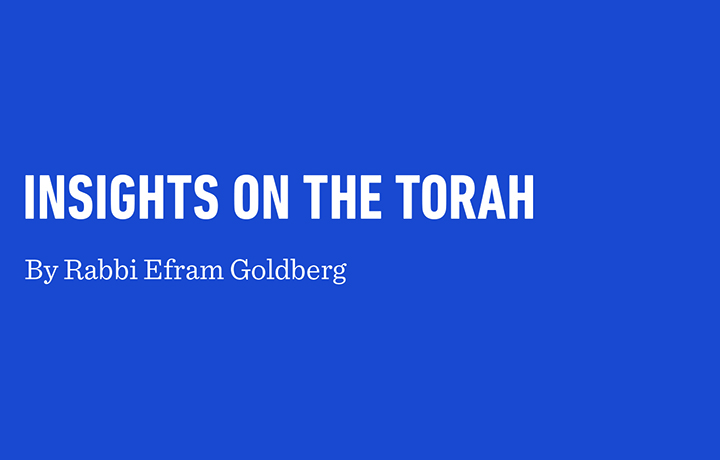Halachic Living Wills During The Nine Days
By Rabbi Dr. Shlomo Brody
During the Nine Days—a period devoted to mourning our national tragedies—we also give space to consider the personal dimensions of loss and fragility. For this reason, there’s a minhag to spend time learning the laws of avelut, especially for those who do not spend time on these matters during the year.
Our great decisors have long taught that it is appropriate to plan ahead for illness and death. Halachaencourages people to purchase, in advance, burial plots, tombstones, and burial shrouds. In fact, the Rivash even allowed people to dig their own graves, provided that they were not in such a state that it would harm them physically or emotionally. Similarly, Rabbi Chaim Falagi and the Chofetz Chaim urged people to sign a financial will while they are healthy. As Hillel taught, “If I am not for myself, who will be for me?” Advance directives are the most prudent way to receive one’s wishes while also avoiding family strife.
Today, it is important for people to designate a healthcare proxy. When choices must be made as people age or approach the end of life, people may no longer be able to speak for themselves. Healthcare providers need to know that you want your decisions to be made within the framework of Jewish law. The decision of what someone in a hospital might deem to be in “your best interest” may not coincide with Jewish values. Your family members need to know who should make these decisions and which rabbi to consult with when there are halachic questions.
Ematai created a halachically-grounded advance healthcare directive to provide clarity and support along one’s healthcare journey. This document has been approved by leading poskim, distributed by national organizations, and adopted by the Rabbinical Council of America as their official directive (ematai.org/rca). It consists of two components. The first is a legal directive that designates your proxy and alternates, names a rabbi for halachic consultation, and affirms your desire for medical decisions to be made in accordance with halacha. It is written in clear, accessible language. Versions are available for use in the U.S., Ontario, Quebec, Israel, and the UK. The second component is a conversation guide that invites people to reflect and communicate their healthcare goals and values. This tool is not only a guide for halachic decision-making, but also an act of care for one’s loved ones.
These values become significant in times when the benefits of certain treatments are not clear, and the potential burdens are great. Doctors once paternalistically imposed decisions. Today, they are cautious because outcomes are uncertain and because Western values emphasize personal autonomy. The prevailing moral assumption is that individuals have the right to decide for themselves, especially when their “quality of life” is reduced. Jewish ethics, however, are framed around obligations, not rights. These include the obligation to protect one’s own health as well as the obligation to save others. For this reason, Jewish law prohibits self-inflicted harm and mandates others to prevent such destructive acts. We are guardians over our bodies, not their owners.
Occasionally, some Jews mistakenly believe that they may choose to forgo necessary healthcare treatments in order to avoid violating Shabbat restrictions or eating non-kosher food. Figures like Rabbi David ibn Zimra asserted that such a person is a “pious fool” (hassid shoteh) who must be compelled to receive such treatments. The halachic presumption is that we act to extend life, following our belief in the sanctity of life and the preciousness of every moment to do teshuvah and good deeds.
In this spirit, Rabbi Moshe Feinstein, for example, ruled that we may push a patient to receive a proven, life-saving medical treatment if his refusal stems from melancholy or despair after undergoing treatment. With great sensitivity, we can frequently restore people to their baseline health and give them the support to push forward.
As Rabbi Yaakov Emden noted, compelling patients is appropriate when the therapy is proven and likely to succeed. It is less justified when the patient lacks confidence in the treatment, doctors themselves are uncertain, or the procedure entails significant suffering. In such circumstances, he asserted, a person may abstain from treatment. Following this argument, Rabbi Feinstein contended that a patient may forgo interventions that will not heal him and will only extend a painful dying process. When possible, we try to lift the spirits and strengthen the willpower of suffering patients. Yet we must remain cautious before imposing treatments that may prolong suffering rather than relieve it, recognizing that we do not fully grasp the depth of another person’s pain, emotional and physical. Personal choice has a place in these circumstances.
Similarly, in cases in which surgery may prolong the life of a patient but not cure their condition, such as with risky amputations, Rabbi Shlomo Zalman Auerbach asserted that we should not compel such a patient to undergo this intervention. Similar rulings regarding suffering patients who are terminally ill have been issued by Rabbi Asher Weiss, Rabbi Eliyahu Bakshi-Doron, Rabbi Zalman Nehemiah Goldberg, Rabbi Hershel Schachter, Rabbi Mordechai Willig, and others. Rabbi Feinstein and Rabbi Moshe Sternbuch have similarly ruled that if a patient cannot speak for himself, we should presume he would decline such painful and non-curative treatment.
How might you feel about these issues? Now is the time to gift your loved ones with clarity about your values and preferences within the framework of halacha. In doing so, we help ensure that the final chapters of our lives are navigated with wisdom, compassion, and fidelity to Jewish law. Let us take these steps while we are healthy and clear-minded, offering guidance to those who may one day speak on our behalf.
Im lo achshav, ematai? If not now, when?
Rabbi Dr. Shlomo Brody is the executive director of Ematai, an organization dedicated to helping Jews navigate aging and end-of-life care with Jewish wisdom and halacha. Ematai.org.













